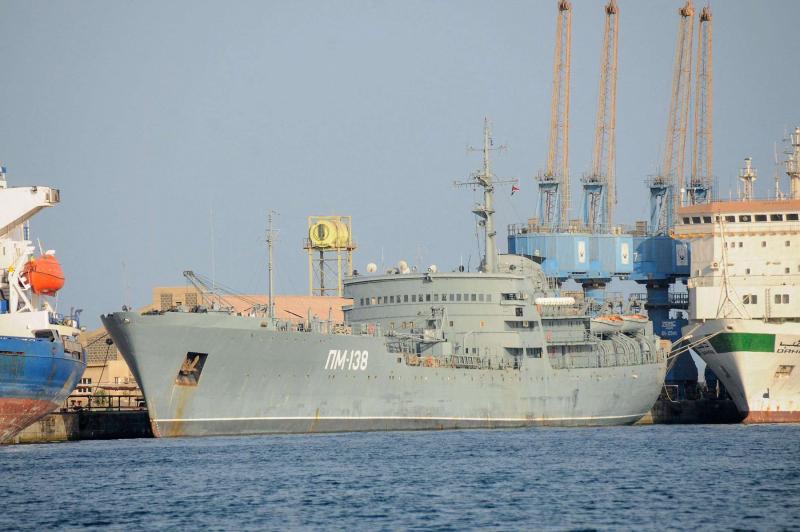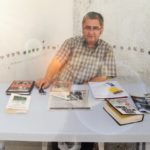KHARTOUM – The transitional authorities in Sudan have found themselves in a tough predicament. While Russia tries to hold on to previous agreements that guaranteed it a military presence on the Red Sea through its “Flamingo” base in Port Sudan, Khartoum is also seeking to strengthen its relations with Washington after Sudan’s removal from the US list of sponsors of terrorism.
Sudanese sources revealed to The Arab Weekly that Khartoum offered Moscow a different deal that includes allowing a limited Russian presence at the “Flamingo” base without heavy military vehicles or missile batteries nor with the building of a military airport.
Such cooperation would be within the framework of maintenance and technical support, meaning the nature of the base would become “civilian and provide logistical services for ships without military equipment that would embarrass Sudan with its Western partners.”
A Russian military delegation led by Deputy-Defence Minister Alexander Fomin, recently held talks in Khartoum and insisted that Moscow wanted to keep to the agreement signed at the end of former President Omar al-Bashir’s rule, which provided for the establishment of a supply centre in Sudan for the Russian fleet.
Last month, there were reports that the building of the “Flamingo” base was suspended, although there was no official confirmation of such a move by Khartoum.
But several government leaders confirmed in various statements the postponement of military cooperation with Russia until the formation of the Legislative Council.
The same sources revealed that the military members of the ruling transitional council were “looking for a solution that combines continued cooperation with Moscow with uninterrupted Western support” since they did not want to “close the door to Russia, because there are advanced military relations between the two countries at the level of armaments, training, technological development and satellite intelligence collection”.
The visiting Russian delegation sought to preserve the substance of the original agreement by offering the Sudanese armed forces weaponry incentives. The aim was to maintain the current status of the relationship and conclude a long-term military agreement that strengthens the concept of a Russian presence on the Red Sea.
The Russian Deputy Foreign Minister Mikhail Bogdanov said Tuesday that Russia and Sudan are continuing their talks over the issue of the Red Sea naval base agreement and that both sides remain interested in the project.
Strategic affairs expert, Rashid Muhammad Ibrahim, indicated that Russia is trying in various ways to settle the dispute over the “Flamingo” base and change the thinking of the civilian wing of the ruling council which is leaning unreservedly towards the United States. The Russians will try in doing so to provide Khartoum with the equivalent of the support it receives from Washington.
The Russian delegation is the second to visit Sudan since the decision to stop deployment at the “Flamingo” base. About two weeks ago, another military delegation spoke to the head of the Transitional Sovereignty Council, Lieutenant General Abdel Fattah Al-Burhan, about the possibility of implementing the provisions of the previous agreement.
It emerged that the matter needed more discussions among army leaders of the two countries, with Moscow promoting the idea of a deal for bilateral military cooperation that included the Russian presence on the Red Sea.
In a statement to The Arab Weekly, Rasheed added that the military members of Sudan’s ruling council do not want to throw all their eggs into the US basket and are seeking to keep a door open to Moscow just in case it is needed. But they do not want this approach to be a source of friction with Western countries.
The slowly expanding cooperation between Khartoum and Moscow is in the interest of both parties, as it does not open the door wide to the Russian presence, while it keeps Moscow in the picture and does not preclude the possibility that the Sudanese will eventually overcome their hesitation, even if that would mean receiving additional assistance from Russia.
Moscow plays on its ability to provide military support to Khartoum while the country receives economic support from the United States and the European Union. Sudan in fact needs help from both sides as the Sudanese army’s weapons are mostly Russian-made and Khartoum would find it difficult to conclude military agreements with Western countries at a time when Sudan faces intractable economic problems and needs urgent aid.
In the meanwhile, Washington is putting pressure on Khartoum to end any Russian presence on the coast Sudanese coast.
The security alliances in the new Red Sea region, which include some Gulf countries, Egypt and the United States, do not allow for the presence of Moscow, which is seeking to launch a parallel alliance in cooperation with China in the same region. Thus, the transitional authority finds itself needing to make more clear-cut decisions to avoid muddling its relationship with the two axes.
Strategic affairs expert, Major General Muhammad Khalil Al-Saim, emphasised that dealing with various pressures requires wisdom from the transitional authority in a way that does not align it with one party at the expense of the other, as it needs the support of all partners in the East and West.
The financial aid obtained by Sudan at the Paris Conference earlier this week illustrated the desire of the international community to help build democratic rule in Sudan and highlighted the need for Khartoum to keep its foreign relations balanced.
Talking to The Arab Weekly, Saim stressed that Sudan is moving towards restraining its relations with Russia in a way that does not put it in an awkward position with the West. Furthermore, the absence of the Legislative Council at this stage means that decisions about foreign relations cannot be resolved until that body is elected and takes on the task of determining the long-term external compass of the country .
The civilian members of the transitional council have decided to gear their cooperation with major powers in a westward direction. This is a source of alarm for the military establishment which is wary of losing its influence. Besides, it feels security arrangements require Russian military support that will not be available in the event of a complete alignment with the West.
Observers have linked the Russian delegation’s visit to Khartoum to the invitation that Turkey issued on Wednesday to the Vice-President of the Transitional Sovereignty Council, Lieutenant General Muhammad Hamdan Dagalo, to visit Ankara, to discuss upholding the 99-year lease agreement signed between the Bashir regime and Turkey on Suakin Island (eastern Sudan).
Faced with all these trends, Khartoum may enter a new period of pressure and counter-pressure reminiscent of past hidden alliances between Moscow and Ankara and with it bargaining by which each party achieves its own goals.
This indicates that Sudan may turn into an arena for conflict between Moscow and Ankara on the one hand and Washington and its European allies on the other.
Source: Arab Weekly



